How Tennessee businesses are filling labor shortages: 'We need workers'
Scott Tuck knew college wasn't an option — investing years before future paydays, not to mention tens of thousands of dollars in loans. Plus, he needed to snag a steady paycheck right out of high school.
Waiting tables or working construction wasn't viable either. Cerebral palsy affects his movement, balance and posture. But Tuck was determined to earn money to support his grandmother, who lived alone on a fixed income.
So after high school graduation, he seized an opportunity for a low-cost certificate program at a technical college, focusing his future on his favorite hobby — computers.
"I got into computers at an early age," said Tuck, who was raised primarily by his grandmother in Red Boiling Springs, a rural community about an hour and a half north of Nashville. "It sort of made sense for me."
Tuck joined the state's workforce-development pipeline by enrolling at Tennessee College of Applied Technology's Hartsville campus, about a half-hour away from his home. Within 20 months, he embarked on what is now a successful career managing software development programs at CereCore, a subsidiary of HCA Healthcare, the $60 billion Nashville hospital leader.
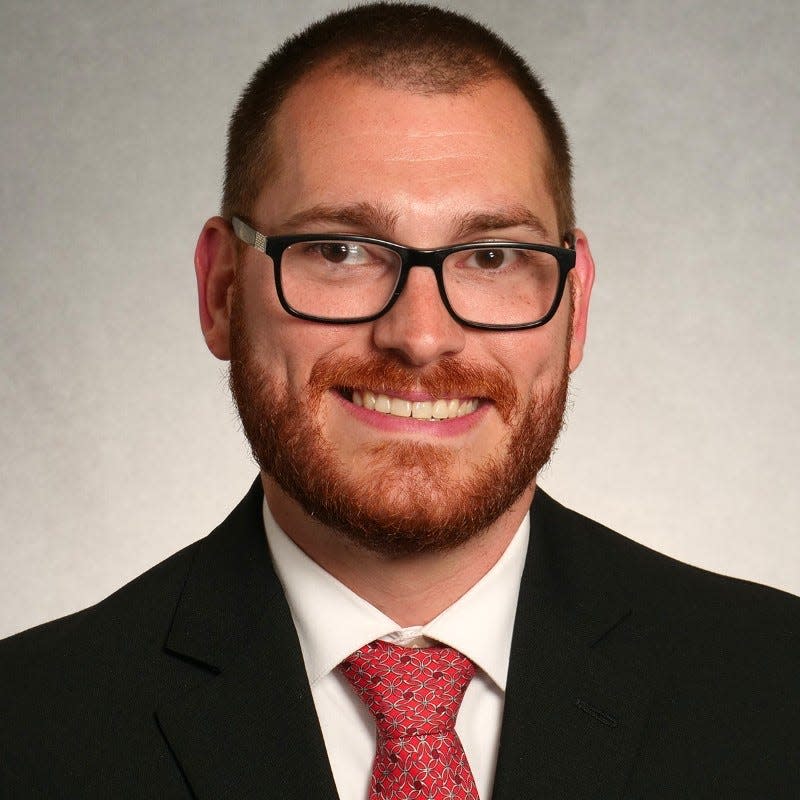
Tuck's path is one that Gov. Bill Lee hopes at least 10,000 new Tennessee workers will walk in the next couple of years, thanks to about $1 billion in new state funding to improve and expand TCAT facilities.
But TCAT's expansion isn't the only remedy to Tennessee's labor shortage. With so many new jobs coming to the state — 80,000 since 2020 — businesses have to get creative to fill positions.
To lure workers, companies aren't just waiting for new graduates to show up at their office doors. They're trying new recruiting tools and training programs that reskill and upskill new employees. HCA Healthcare even eliminated the middleman, purchasing Galen College of Nursing to streamline its hiring pipeline.
Some business leaders are connecting with students on career planning as early as kindergarten.
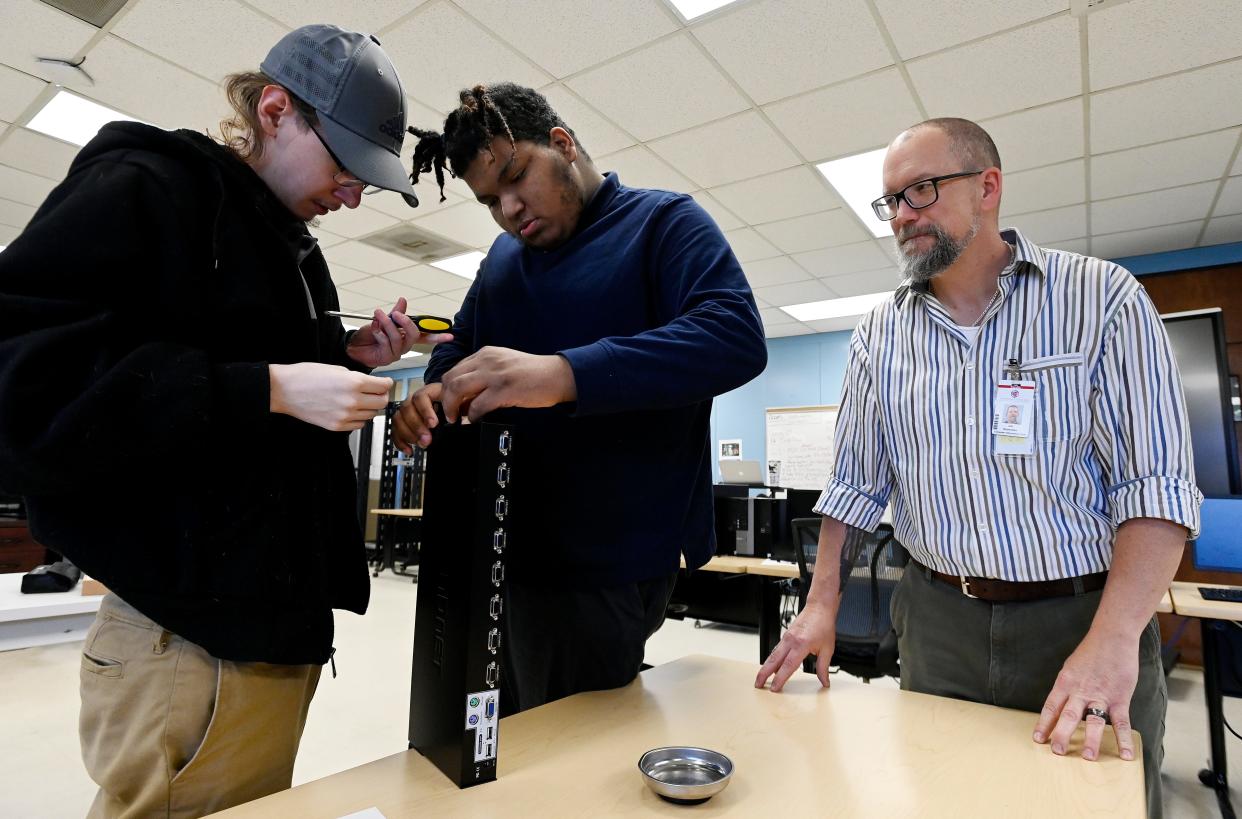
"We focus a lot on building the talent pipeline from kindergarten to 12th grade, as well as post-secondary education," said Stephanie Coleman, the chief talent development officer at the Nashville Area Chamber of Commerce. "Employers are partnering with the K-12 system much earlier for career exploration and exposure to opportunities."
Companies are also increasingly relying on nonprofits to connect people with barriers to employment like previous incarceration or those with disabilities with jobs.
"We need workers," Lee told business leaders at the chamber's 2024 Governor's Address. "As a person who formerly worked in the private sector and desperately needed workers, we made the Governor's Investment in Vocational Education a priority."
A 100,000-worker shortage
The labor shortage is not just a Tennessee issue. It's nationwide — the result of declining birth rates, reduced immigration and mass retirements during the COVID-19 pandemic. The U.S. Chamber of Commerce said if every unemployed American was hired, 3 million open jobs would still remain.
Tennessee's workforce shortage reached 100,000 in March 2023, according to the University of Memphis Workforce in Progress report for the Tennessee Business Leadership Council.
And major new projects such as the construction of the new Nissan Stadium in downtown Nashville and Ford Motor Co.'s Blue Oval City near Memphis have only begun to hire the thousands of workers that will be needed.
But matching open positions with qualified available workers continues to be one of the biggest challenges cited by businesses.
"There have been approximately two openings per unemployed person since October 2021," the TBLC report states.
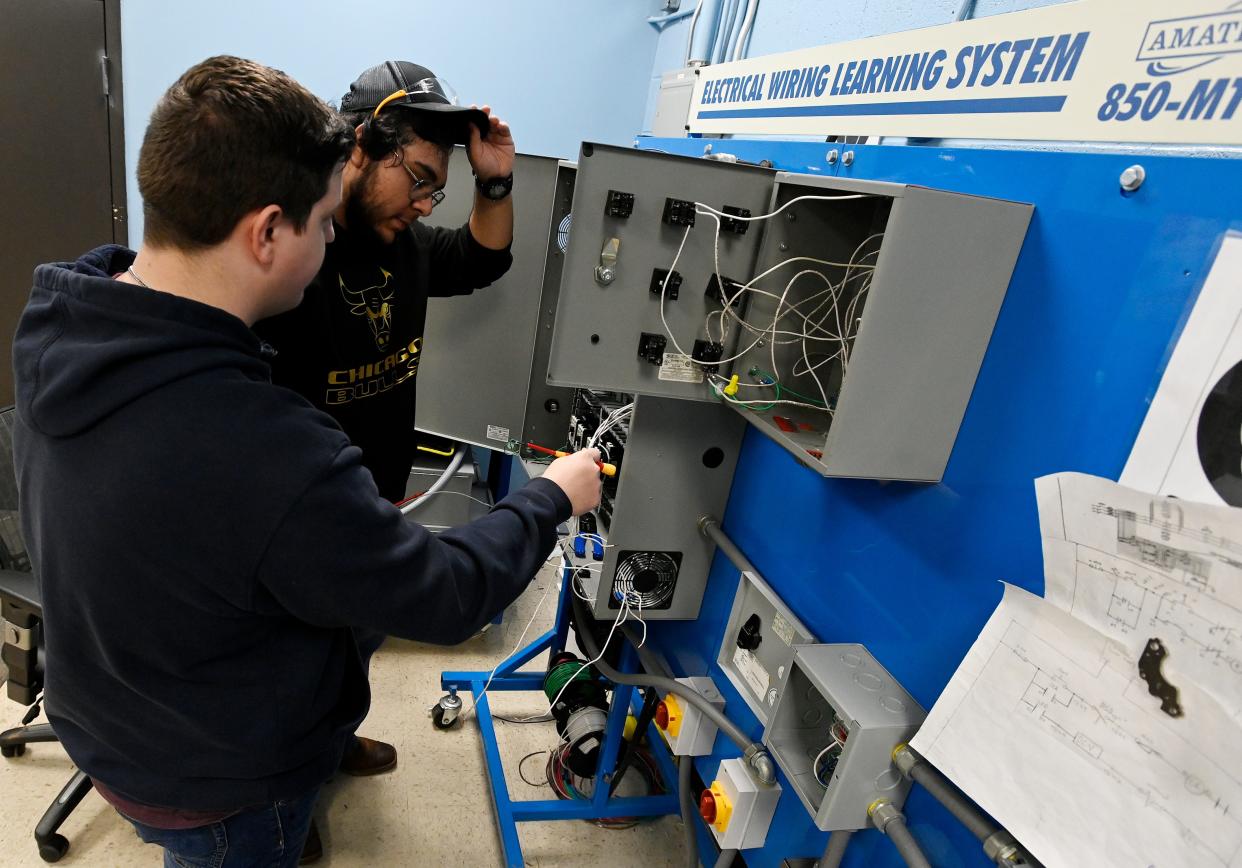
Finding workers in Tennessee: 'It's all about figuring out a person's strengths'
TCAT and other workforce development programs such as the Career and Technical Education network are key, but not a cure. So are initiatives such as UpRise, Project Return, the Precisionists and other nonprofits that are dedicated to increasing employment of people with disabilities, veterans and the formerly incarcerated, among others.
In 2022, Liberty's Station, a cafe in Murfreesboro, began training people with disabilities and other impediments to join the workforce. The nonprofit relies on donations, volunteers and sales of grilled cheese and coffee to fund its work.
"We’re tapping into this workforce that most businesses overlook — it’s those with disabilities, mainly," said Liberty's Station founder Jody Powers. "When training with peers like themselves, they’re able to get past feeling singled out and like no one understands."
Powers said she was called to start the organization because of the community need.
"It's the largest minority group in the world, and if employers aren't even looking at people with disabilities they're not being wise," she added. "We have people in wheelchairs paralyzed, autism, nonverbal. They just thrive when given a chance."
The Precisionists was founded in 2016 with a similar mission — to help people with autism and other neurodivergent conditions to integrate into meaninful careers. In Nashville, about 50 workers are contracted with HCA, Dollar General, Vanderbilt University and UBS.
Precisionists CEO Ernie Dianastasis said he hopes to grow in future years from 50 to 500 workers in Nashville.
"Through no fault of their own these individuals have been 75-80% under or unemployed," Dianastasis said. "They might be stocking shelves when they could be software engineers. But because of their neurodiversity challenges, they might have trouble with day-to-day communications."
The company operates like a recruiting firm, providing training specific to their skill sets and managing workers as they are contracted for jobs.
"It's all about figuring out a person's strengths," Dianastasis said. "At the same time, we're working with companies to help them understand neurodiversity better."
Filling the 'skills gap'
Nashville Area Chamber of Commerce officials are strategizing ways to better connect businesses with workforce solutions.
"You may see us increasing our efforts around expanding apprenticeships" among other initiatives, Coleman said.
The shortage has eased a bit this year, Coleman said, but about 28,000 unfilled jobs remain in Middle Tennessee.
The health care industry has the largest shortage — especially in nursing. Business management and information technology sectors are also badly hurting for more employees.
Chamber leaders are focused on removing barriers to work, from increasing affordable child care to making technical-skills training more accessible.
"Housing affordability, transportation, child care, digital skills, food security and health are key areas that impact an individual's ability to work," Coleman said. "Child care is becoming more and more of an area of focus as individuals are opting out of the labor force because child care is hard to find and expensive."
Work shortage in Tennessee: Robots to the rescue
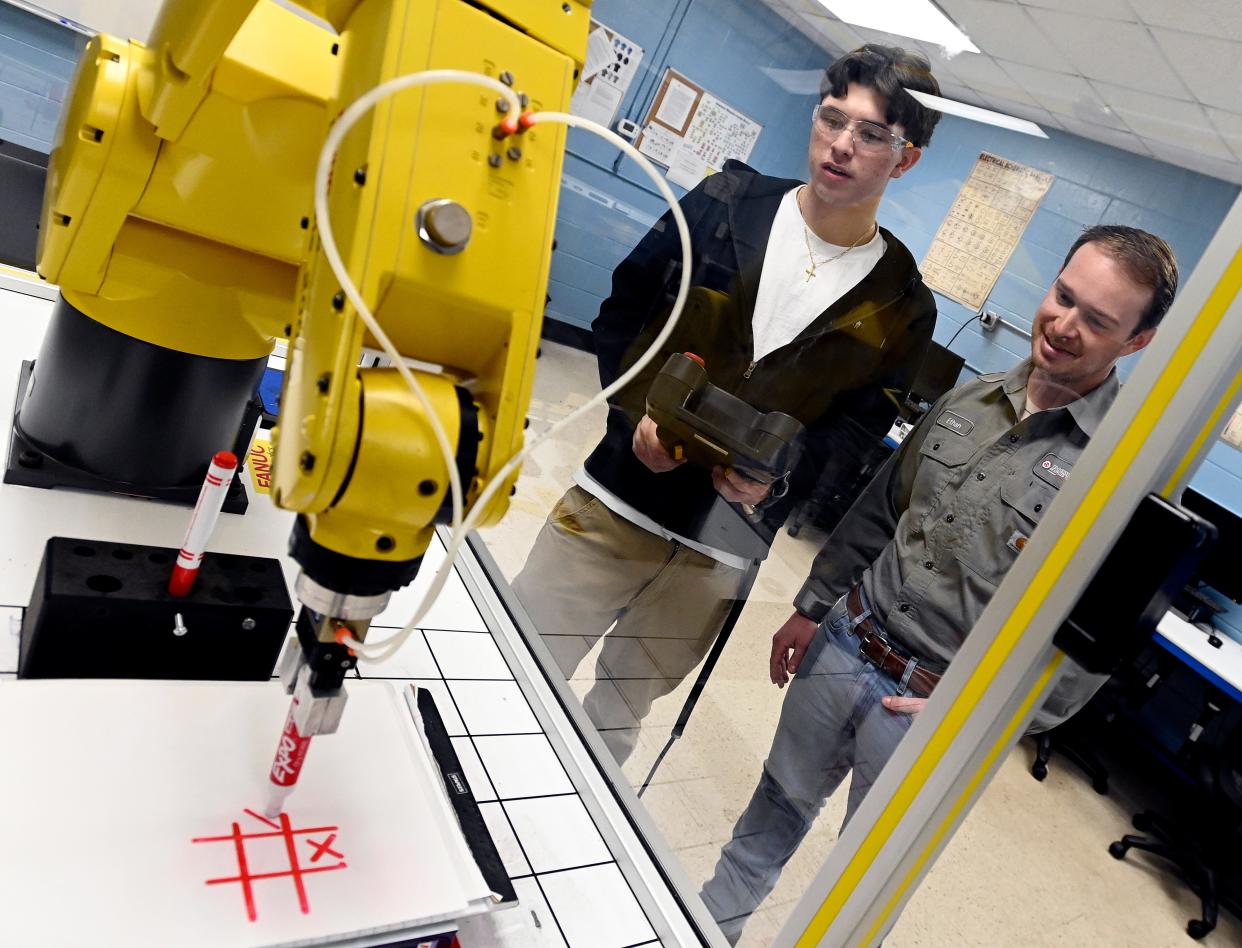
In many cases, employers are looking to technology for staffing solutions to address the most repetitive jobs. Robotic process automation and generative artificial intelligence are executing a range of automated duties, from scheduling tasks and laying bricks to tracking equipment and monitoring warehouse worker productivity.
"AI and other advanced technologies like robotic process automation, drones, and virtual reality will soon be ubiquitous across the industry," states Forvis research firm's Construction Quarterly January 2024. "Construction businesses that adopt these tools now can build efficiencies that will set themselves apart from the crowd."
Coleman said that as lower-skilled jobs are increasingly filled by technology solutions, demand for higher skilled workers will continue.
"It’s really important to have a strong college and career adviser in high school and postsecondary school," Coleman added. "We’ve done intensive work on mapping career pathways through new skills to make sure students get the right information about their career pathway."
On March 15, Lee signed House Bill 1923, which automatically reserves space at TCAT for dual-enrollment students who take classes as part of their high school curriculum.
'Earning more with less debt'
At TCAT’s Portland campus, students can receive certifications for computing, welding, cosmetology, nursing and machining in less than two years. They can go on to study automotive technologies at the Nashville campus.
Joseph Redemske, who teaches computer skills at the Portland campus, said classes are designed as much to teach technical know-how as to impart soft skills such as customer service and office etiquette.
"We’ll start teaching you to connect to a motherboard, get operating system going. We’ll start at the lowest spot possible," Redemske said, emphasizing accessibility.
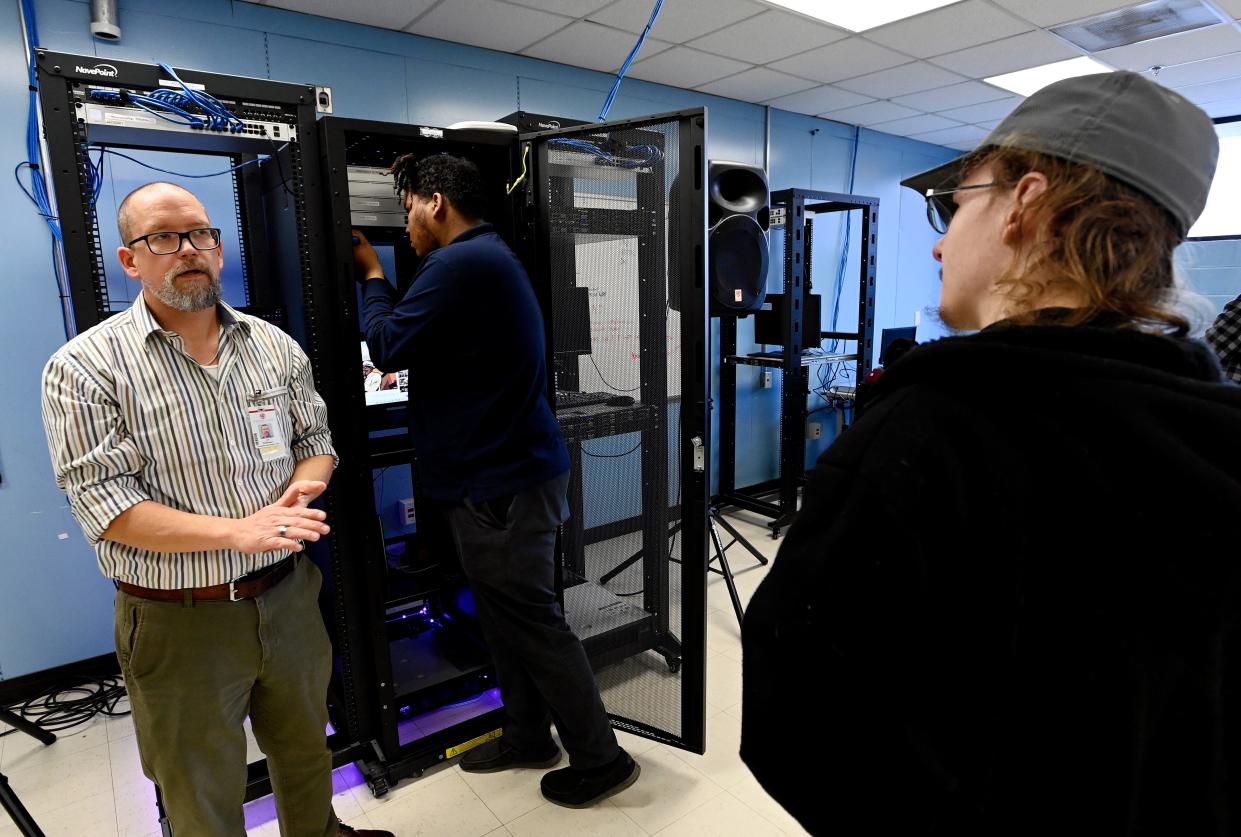
"Our students are earning more with less debt. We don’t burden them with big debt right out of high school."
The path worked well for Tuck, who now looks to TCAT to help hire new team members at CereCore.
Within a year of graduating from TCAT's computer certification program, Tuck landed an entry-level systems analyst position at Fortune 500 company Dell Technologies. He hit the ground running, rising quickly through the ranks of technicians into management.
And he's returned to TCAT — this time to recruit new workers.
"We were having a really hard time finding the talent in the Nashville market because it is so tight," Tuck said. "You’d have weeks where you wouldn’t have any interviews."
Tuck regularly speaks at TCAT classes and recruits students to work at CereCore and HCA. CereCore even modified its new-hire training schedule to accommodate TCAT classes.
"That true hands-on experience set me up to be extremely successful in my first job at Dell," Tuck said. "We had 300 front-line technicians on the floor. In three months, I was No. 2. I attribute that to TCAT because they gave me the tools to understand what was going on technically."
Sandy Mazza can be reached via email at smazza@tennessean.com, by calling 615-726-5962, or on Twitter @SandyMazza.
This article originally appeared on Nashville Tennessean: Nashville jobs: Tennessee businesses are filling labor shortages
